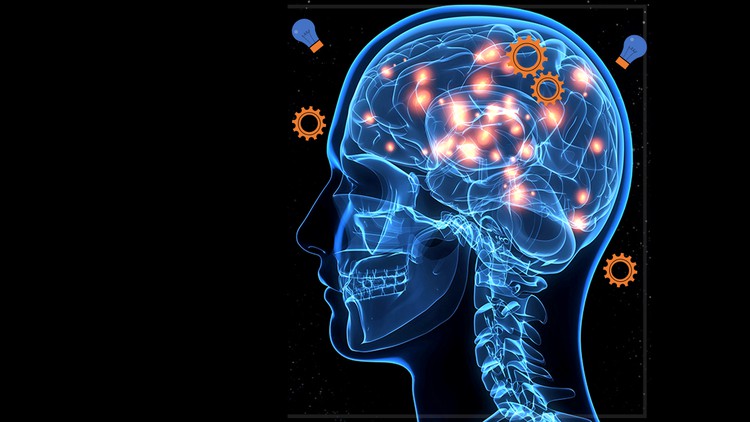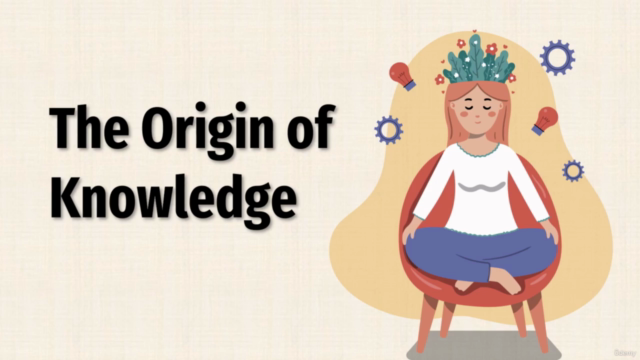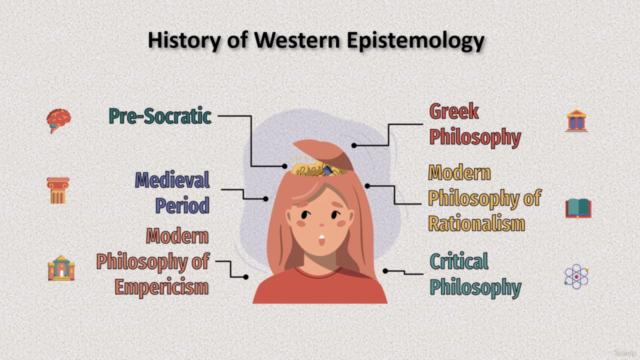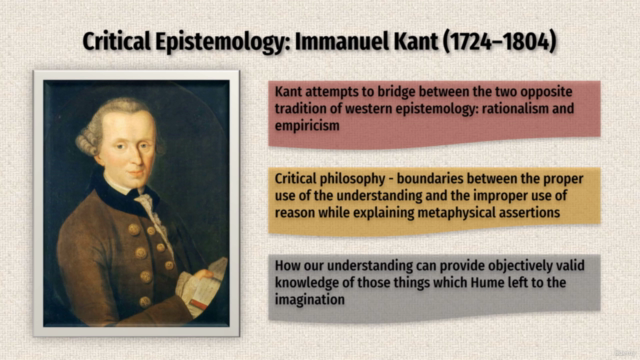Introduction of Epistemology-Phil 101

Why take this course?
🎓 Course for Phil 101: Introduction to Epistemology
Course Overview: In this Phil 101 course, Introduction to Epistemology, we embark on a journey through the history and development of human understanding and knowledge. This course is structured into several comprehensive sections, each focusing on a different aspect of epistemological thought. From the foundational questions of what knowledge is to the debates between rationalism and empiricism, this course will guide you through the major philosophical positions and provide a nuanced understanding of the complexities involved in knowing.
Section 1: Defining Knowledge 🧐 What constitutes knowledge? In this section, we explore the essence of knowledge and the various ways philosophers have tried to grasp its nature. We'll examine the concept of justified true belief and discuss what it means to truly know something.
Section 2: The Rationalist Perspective 🌟 From Plato to Leibniz - Rationalists argue that reason, not sensory experience, is the primary source of knowledge. We'll delve into the theories of Plato, Descartes, and Leibniz, understanding their contributions to the rationalist tradition and how they conceive of an ordered universe governed by eternal truths.
Section 3: The Empiricist Perspective 🌱 From Locke to Hume - Empiricists maintain that sense experience is the foundation of all knowledge. We'll study the works of John Locke, George Berkeley, and David Hume, examining their challenges to rationalism and their differing views on the nature of reality and the limits of human understanding.
Section 4: Critical Philosophy & Kant 🔄 The Synthesis of Rationalism and Empiricism - Immanuel Kant's critical philosophy represents a pivotal moment in the history of epistemology. We'll explore Kant's Copernican Revolution, his distinction between phenomena and noumena, and how he attempted to reconcile the rationalist and empiricist traditions.
Section 5: Challenges & Contemporary Responses 🤔 After Kant, philosophers have continued to challenge and refine our understanding of knowledge. We'll look at some of these contemporary responses and consider how philosophy today continues to be influenced by the rationalist-empiricist debate.
Section 6: Interactive Learning & Assessment 🎥 Each section of this course is accompanied by interactive slides featuring animations and images to bring concepts to life. Following each section, there are multiple-choice quizzes to help reinforce your understanding and retention of the material.
Concluding Remarks: 🏁 As we wrap up our exploration of epistemology, we'll reflect on the journey through the history of philosophical thought on knowledge. We'll consider the enduring debate between rationalism and empiricism and how each position contributes to our ongoing quest to understand the world around us.
Additional Resource: 👀 If you're intrigued by existentialist thought, I also offer another course titled "Introduction to Sartre's Existentialism." This course will further explore the implications of existentialist philosophy on our understanding of human existence and consciousness.
This course is designed to be interactive and engaging, with a focus on helping you grasp complex ideas through clear explanations, visual aids, and practical assessments. Whether you're new to philosophy or looking to deepen your understanding, "Introduction to Epistemology" will provide a solid foundation in the study of knowledge and belief.
📚 Let's embark on this intellectual adventure together!
Course Gallery




Loading charts...